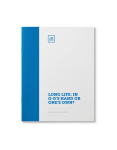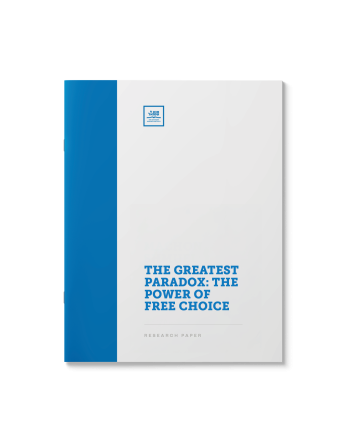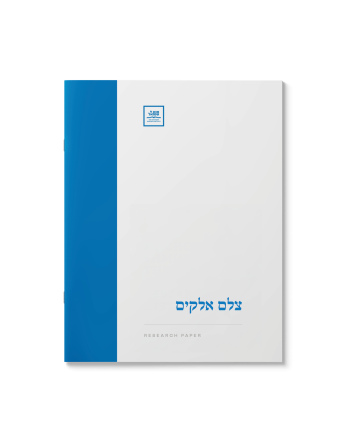Long Life: In G-d’s Hand or One’s Own?
$39.00
How can we reconcile the fact that the length of a person’s life is predetermined by G-d and those behaviors that can shorten one’s life? Do we have any control over life expectancy? How much significance ought one give to medical intervention in terms of lengthening life?
| Language | English |
|---|---|
| Paper Type | Sources |
| Pages | 10 |
Related Products
One of the most painful events to strike the Jewish people in recent memory is the tragedy of the Holocaust, which decimated European Jewry in a show of appalling cruelty. Having narrowly escaped its horrors himself, the Rebbe was uniquely placed to offer comfort and guidance to those who survived with both faith and sensitivity.
Part I – Making Sense of the Senseless: The horrific suffering of the Holocaust, having seared into our collective conscience, has confronted many Jews with a crisis of faith. The Rebbe offers a unique approach, allowing us to affirm our faith in a kind and just G-d, while maintaining our empathy for the plight of the Holocaust victims.
This paper addresses a range of issues. How does one maintain faith in G-d’s justice in light of such unfathomable horrors? Is this paradox surmountable for all, including those who do not fully subscribe to all dimensions of Torah scholarship? Is it appropriate to rationalize the plight of the Holocaust victims? Does our moral outrage preclude us from taking to heart the lessons these events offer?
Accustomed as we are to the world’s natural order, our notion of sorcery and other occult arts is accompanied by some level of fascination and intrigue.
How does the Torah explain the mechanisms used to achieve divination and witchcraft? More importantly, how do we reconcile the existence of evil forces that are capable of inflicting harm on humanity that was not ordained by Heaven?
Finally, how does one attain immunity against ominous spiritual realities?
Life is an endless gauntlet of tests and challenges. Judaism teaches us that G-d never gives us a challenge we can’t surmount, but the question remains: why? Why does G-d continuously test us? What purpose does it serve? Can we not succeed without them? And how can we learn to thrive in the face of challenge?
“Why do the wicked prosper?” (Jeremiah12:1) This question has troubled the faithful from the times of Job and Jeremiah until today. Ought our faith in an unknowable G-d be weakened when witnessing the prosperity of the wicked? A smorgasbord of classic approaches.
(Hebrew)
If an omniscient G-d already knows what our future holds,
how is it possible to have free will? Known as the clash of yediah and
bechirah, this paradox has gripped scholars for millennia. This paper explores
the ongoing debate.
מעיקרי האמונה הוא החיוב להאמין שהקב”ה מושלל הוא מגשם וציור גופני. אך האומנם זאת היא הדיעה המוסכמת אצל גדולי ישראל לדורותיהם? והאם ביכולתו ית׳ הבלתי בעל גבול להתלבש גם בדמות גופני? על שלילת הגשמות והנמנעות אצלו ית׳ בספרות החקירה והחסידות.
Hashgachah Pratis literally means, “Personal divine providence.” This refers to the ever-present eye of G-d that watches and directs our every step. Where did this concept originate from? Who coined the term? Once the world has been created by G-d, why is it necessary for Him to continue to “manage” my life? How is free choice to be reconciled with Divine Providence?
כי בצלם אלקים עשה את האדם. האומנם? והרי אינו שייך ציור גופני אצל הקב״ה ח״ו? להלן חקר ועיון תמציתי משלל הפירושים שנאמרו בזה על ידי מפרשי המקרא, הוגי מחשבת ישראל, ומאורי הקבלה והחסידות.
Bitachon. It’s a powerful word; the absolute faith that G-d will always provide. From financial deals to health concerns, travel arrangements to hopes for the future – we trust that G-d only acts for the best. But how can we have Bitachon when we’re faced with a violent and dangerous world? When personal tragedy strikes, how can we continue to have faith? Where is the line drawn between Bitachon and folly? When one laughs in the face of nature, is he trusting in G-d or scorning G-d’s providence?
Men have forever clung to non-rational practices to ensure their safety and success. But the Torah requires faith in G-d and avoidance of divination and the like. Where is the line between prohibited and permissible divinations or superstitions? Does a Torah-true lifestyle include its own Omens, good signs and practices which are permitted and even encouraged? What is the background of many of our more well-known Segulos?
Related: It’s Written in the Stars: The Jewish Approach to Astrology, Zodiac and the Horoscopes
and Bones and Broomsticks: Sorcery in the Torah
The belief that the world is created and sustained by G-d at every moment is commonplace. Recently some have challenged the assumption that this is the classical understanding of mainstream Jewry. Is he correct?
“If you are righteous, what do you give Him?” (Job 35:7)
It is axiomatic that mortal actions are completely insignificant to an infinite creator. Yet the Torah provides examples of where human actions set off a chain reaction throughout the cosmos, affecting the supernal realms or reality. What are some of these examples, and how should they be understood?
(Hebrew)















